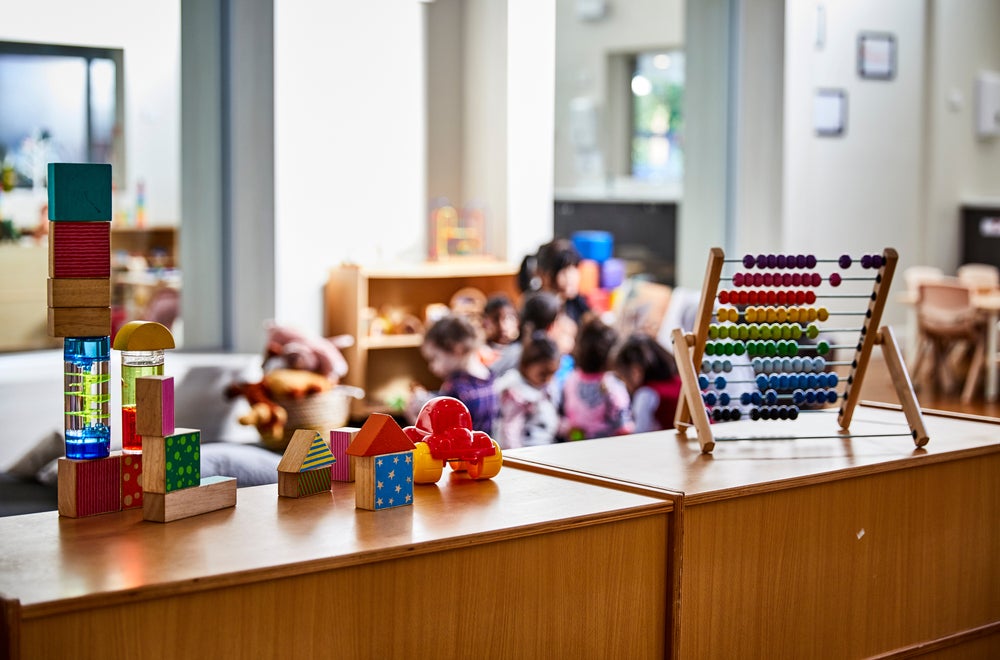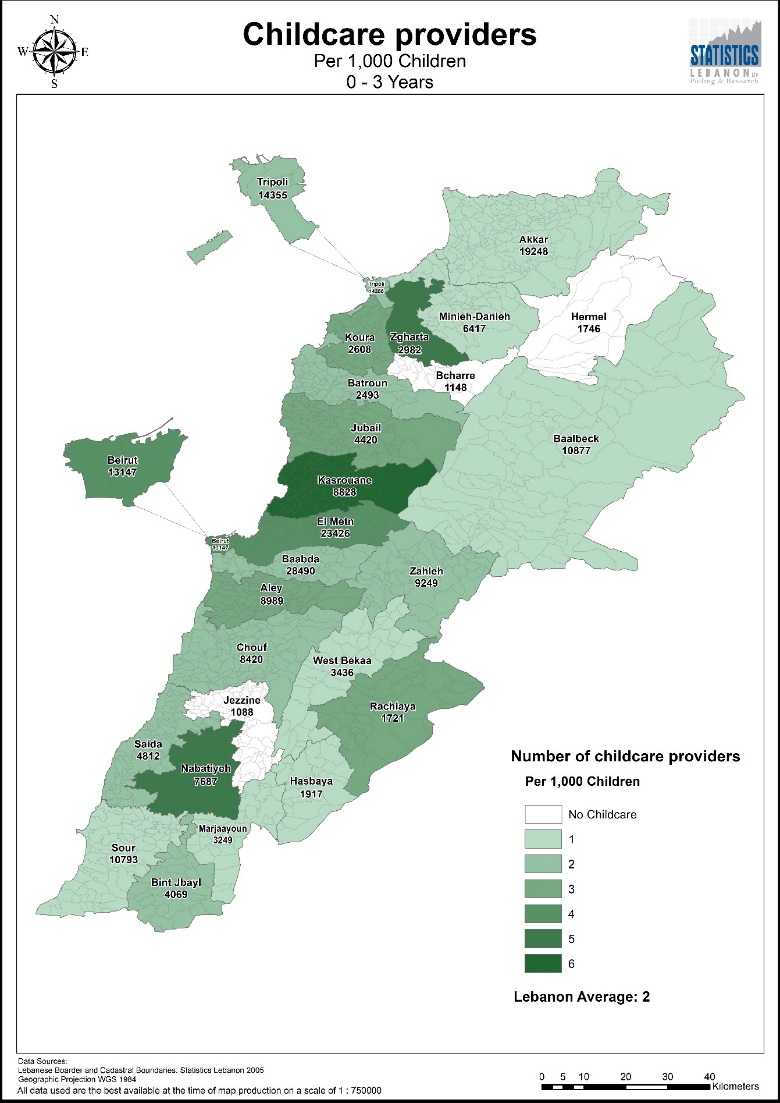 Childcare center with toys and activities.
Childcare center with toys and activities.
In Lebanon, 60% of women still cite “childcare responsibilities” as the main reason why they do not join the workforce. In fact, despite a relatively high educational attainment, with 64% of women having completed at least their secondary studies, the country has seen a low female labor force participation rate of 25% over the past 10 years.
In partnership with the National Commission for Lebanese Women, the World Bank Group’s Mashreq Gender Facility (MGF) conducted a national, comprehensive landscape study of the childcare services in Lebanon. The assessment comprised of six components touching on the regulatory and institutional framework of the childcare sector, as well as the different aspects of the supply and demand for childcare services.
Initial Findings of the Study
Due to the absence of an enabling environment strengthening women’s rights in the workplace and the predominance of gender stereotypes in the Lebanese society, childcare responsibilities are unevenly shared within a household, and most of the time, the biggest portion falls on the mothers’ shoulders. Expanding the access to affordable and quality childcare services would enable women to join the workforce, and thus improving their productivity, their confidence , and family income. As a matter of fact, 31% of women said that if quality childcare services were accessible they would consider starting a business from home and 26% would work outside their home.
Also, taking into consideration that 99% of childcare providers’ staff are women, the expansion of the childcare services sector would potentially lead to significant job creation for women and would contribute to the economic growth of the country. Moreover, the increased awareness of the importance of early childhood education on children’s wellbeing is reshaping social norms which traditionally dictate that mothers are solely responsible for the care of their children. Studies have demonstrated long-lasting returns of quality early interventions such as improved school readiness and school achievements, reduced repetition and drop-out rates.
In Lebanon, the supply of childcare services is dominated by private providers (80%), followed by public providers (12%), and semi-private providers (8%). Childcare providers are concentrated in coastal areas, with the highest density being in Beirut and Mount Lebanon. This uneven distribution leads to low access to childcare providers in inland regions and rural areas. Noting that 75% of childcare providers receive children from surrounding areas, this suggests that commuting distance is an important factor affecting parents’ choice on whether to send their children to a childcare center or not.

Figure 1: Childcare providers per 1000 children
Note: The numbers beneath each area indicate the estimated 2021 population of children 0-3
While 80% of childcare centers cater to children aged 1-3, only 58% cater to children between 0-1, and these are primarily private sector centers which generally tend to be more costly. This further prevents mothers from joining the workforce during the first year of maternity.
Affordability has also become a major concern since the start of the economic crisis in 2019. In 2021, the percentage of childcare providers servicing families with payment difficulties has doubled, reaching 41%. Additionally, due to the local currency devaluation and the significant increase in fuel prices, the monthly fees per child are no longer sufficient to cover the operational expenses of childcare providers. Therefore, in order to remain affordable, childcare providers are often constrained to compromise on quality which can negatively affect the healthy development of children. Other providers have had to increase their fees and have thus become unaffordable to many.
Given the dire situation in the country, the Government of Lebanon needs to acknowledge the social and economic benefits related to the expansion of the childcare quality services provision and ensure its affordability and inclusiveness to the most vulnerable families. The multi-sectorial aspect of the childcare agenda calls for a holistic approach, including:
1. Diversification of Modalities: For more flexible and customized services, it is suggested to offer alternative options to the center-based care provision (private, public, semi-private), such as quality community-based or home-based care (childminders, nannies).
2. Policies and Regulations: For a unified high-quality and affordable childcare service, it is important to prioritize the establishment of a national multi-sectorial government strategy that regulates care for early years and education.
3. Social Norms: For a more even distribution of household chores and childcare responsibilities between men and women, social norms and gender stereotypes need to be addressed through comprehensive communication campaigns. Per our household survey, over 61% of women stated being satisfied with the distribution of childcare responsibilities in the household, suggesting that women still give in to the expectations set by society.
To help push the childcare agenda forward, the Mashreq Gender Facility will support the Government of Lebanon by establishing a Community of Practice focused on childcare, facilitating the development of a national childcare roadmap, developing a national framework for trained workforce, designing a pilot to increase access to quality childcare services, identifying investment opportunities with the private sector, as well as designing, implementing and evaluating a behavior-informed communications campaign.




Join the Conversation